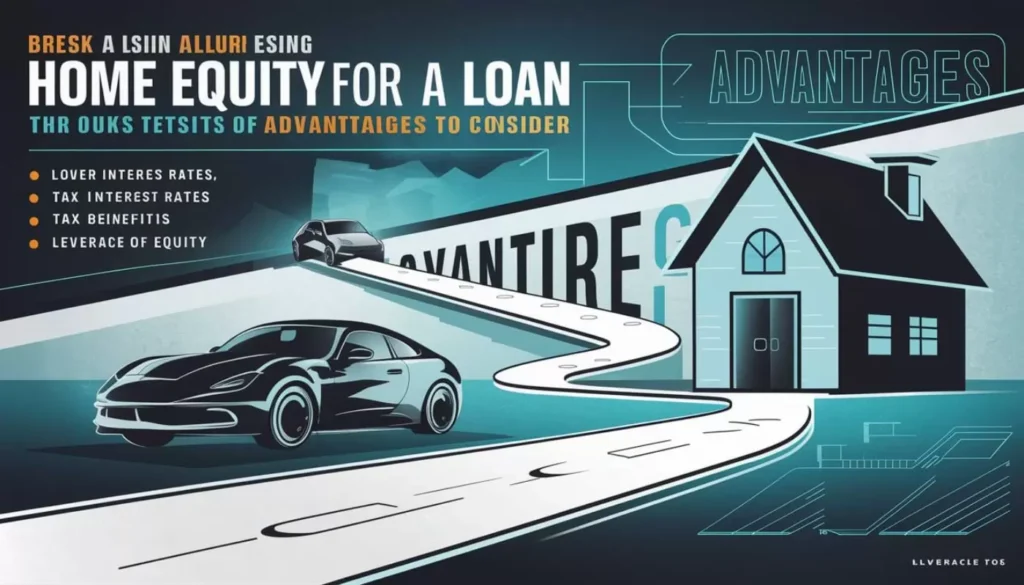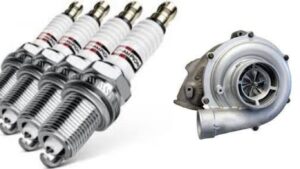In the world of personal finance, savvy homeowners often find themselves pondering unconventional ways to make big purchases. One question that frequently pops up is, “Should I use my home equity to buy a car?”
It’s a tantalizing prospect – tapping into your home’s value to finance that dream vehicle. But is it a smart move for your finances? Let’s dive deep into this equity purchase dilemma and explore the pros and cons of using home equity for auto financing.
Understanding Home Equity: The Foundation of Your Financial Leverage
Before we rev up our discussion on using home equity for car loans, let’s break down what home equity actually is. Simply put, home equity is the portion of your property that you truly own. It’s the difference between your home’s current market value and the amount you still owe on your mortgage loan.
For example:
- If your home is worth $300,000
- And you owe $200,000 on your mortgage
- Your home equity would be $100,000
Your home equity grows in two ways:
- As you pay down your mortgage loan
- If your property value increases
Calculating Your Available Home Equity
Not all of your home equity is up for grabs when it comes to borrowing. Lenders typically allow you to borrow up to 80-85% of your home’s value, minus what you still owe.
Let’s use our previous example:
- Home Value: $300,000
- 80% of Home Value: $240,000
- Mortgage Balance: $200,000
- Available Equity: $40,000
Types of Home Equity Loans for Car Purchases
When considering using home equity to finance a vehicle, you’ve got a few options:
- Home Equity Loan (Fixed-Rate): This is like taking out a second mortgage. You get a lump sum and pay it back over time with fixed interest rates.
- Home Equity Line of Credit (HELOC): This works more like a credit card. You have a credit limit and can borrow as needed, often with variable interest rates.
- Cash-Out Refinance: This involves refinancing your entire mortgage for more than you owe and pocketing the difference.
Each of these financial products has its own set of advantages and disadvantages when it comes to buying a car with equity.
The Allure of Using Home Equity for a Car Loan: Advantages to Consider

Now that we’ve laid the groundwork, let’s explore why some homeowners find using home equity for auto financing so appealing.
Lower Interest Rates: More Bang for Your Buck
One of the most significant advantages of using home equity to buy a car is the potential for lower interest rates compared to traditional auto loans. Home equity loans are secured by your property, which makes them less risky for lenders. As a result, you might snag an interest rate that’s several percentage points lower than a standard car loan.
| Loan Type | Average Interest Rate (2024) |
| Home Equity Loan | 5.5% – 7.5% |
| Traditional Auto Loan | 7% – 12% |
Potential Tax Benefits: Consult Your Tax Pro
While the Tax Cuts and Jobs Act of 2017 limited the deductibility of home equity loan interest, you might still be able to deduct the interest if you use the funds to buy, build or substantially improve your home. However, using the money to buy a car typically doesn’t qualify. Always consult with a tax professional to understand the current tax implications for your specific situation.
Longer Repayment Terms: Breathing Room for Your Budget
Home equity loans often come with longer repayment terms than traditional auto loans. While a typical car loan might last 3-7 years, home equity loans can stretch out to 10-15 years or even longer. This can translate to lower monthly payments, giving your budget some breathing room.
Case Study: The Johnson Family’s Car Purchase
The Johnsons were eyeing a $30,000 SUV. Here’s how their options stacked up:
- Traditional 5-year auto loan at 8%: $608/month
- 15-year home equity loan at 6%: $253/month
The home equity option reduced their monthly payment by $355, but they’d pay more in total interest over the life of the loan.
Flexibility in Car Choice: From Clunkers to Luxury
Using home equity can give you more flexibility in your car choice. With potentially more funds available, you might opt for a newer model, a luxury vehicle, or even multiple cars. This flexibility can be especially appealing if you’re in the market for a used car, as traditional auto loans sometimes have restrictions on the age of the vehicle.
The Risks: Why Using Home Equity to Buy a Car Might Not Be Wise
Before you rush to tap your home equity for that new set of wheels, let’s pump the brakes and consider the potential drawbacks.
Putting Your Home on the Line: A High-Stakes Game
The most significant risk of using home equity to finance a car is that you’re putting your home on the line. If you default on a traditional auto loan, the lender can repossess your car. But if you can’t make payments on a home equity loan, you could lose your house. That’s a massive risk for a depreciating asset like a car.
Extended Debt and Negative Equity: A Financial Quagmire
Cars depreciate quickly. In fact, a new car can lose 20-30% of its value in the first year alone. If you stretch out your car payments over 10-15 years using home equity, you could end up owing more on the loan than the car is worth for a very long time. This situation, known as negative equity, can be a financial nightmare if you need to sell the car or if it’s totaled in an accident.
Higher Overall Costs: The Long-Term Price Tag
While lower monthly payments might seem attractive, remember that stretching out your repayment term means you’ll likely pay more in interest over time. Let’s compare:
- 5-year auto loan: $30,000 at 8% = $36,688 total paid
- 15-year home equity loan: $30,000 at 6% = $45,540 total paid
In this scenario, using home equity costs nearly $9,000 more in the long run.
Opportunity Cost: Missing Out on Home’s Appreciation
When you use your home equity to buy a car, you’re essentially trading a portion of your home’s future appreciation for a depreciating asset. This opportunity cost could be significant, especially in a rising real estate market.
Alternatives to Consider Before Tapping Home Equity

Before you decide to use your home equity for a car purchase, it’s worth exploring other options that might be a better fit for your financial situation.
Traditional Auto Loans: The Tried-and-True Approach
Auto loans are designed specifically for car purchases. They typically offer:
- Shorter terms (3-7 years)
- Competitive rates for those with good credit
- No risk to your home
Personal Loans: Unsecured Options
Personal loans can be a good middle ground:
- No collateral required
- Fixed interest rates
- Flexible use of funds
Lease Options: Drive New for Less
Leasing can be a good choice if you:
- Want lower monthly payments
- Enjoy driving a new car every few years
- Don’t mind mileage restrictions
Saving and Buying with Cash: The Patient Approach
While it requires discipline and time, saving to buy a car with cash offers:
- No interest payments
- No debt
- Complete ownership from day one
When Might Using Home Equity for a Car Make Sense?
While it’s generally not advisable to use home equity for a car purchase, there are a few scenarios where it might be worth considering:
Consolidating High-Interest Debt
If you’re carrying high-interest credit card debt along with needing a car, using home equity to consolidate debt and purchase a vehicle could potentially save you money on interest.
Investing in a Business Vehicle
For entrepreneurs, using home equity to purchase a vehicle essential for your business might make sense, especially if it opens up new income opportunities.
Special Circumstances
In cases where you need vehicle modifications for medical reasons or accessibility, the flexibility of a home equity loan might be beneficial.
Steps to Take If You Decide to Use Home Equity for a Car

If after careful consideration you decide to move forward with using home equity to buy a car, here are some crucial steps to take:
- Shop around for the best home equity loan rates: Don’t settle for the first offer. Compare rates from multiple lenders.
- Calculate the total cost of borrowing: Look beyond monthly payments to understand the full cost over the life of the loan.
- Consider the impact on your long-term financial goals: How will this decision affect your retirement savings or other financial objectives?
- Consult with a financial advisor: Get professional advice tailored to your specific financial situation.
Expert Opinions: What Financial Advisors Say
To get a broader perspective, let’s hear from some financial experts:
Using home equity to buy a car is rarely a good idea. You’re putting your home at risk for a rapidly depreciating asset. It’s better to explore traditional auto financing or save up for the purchase. Sarah Johnson, CFP
In some cases, using home equity can make sense if it’s part of a larger debt consolidation strategy. But for most people, it’s too risky for a car purchase.Michael Chen, Financial Analyst
Conclusion.
The decision to use home equity to buy a car isn’t one to be taken lightly. While the lower interest rates and longer repayment terms can be tempting, the risks often outweigh the benefits for most homeowners. You’re essentially trading the security of your home for a depreciating asset.
Before making any decisions, take a hard look at your overall financial picture. Consider your long-term goals, your risk tolerance, and alternative financing options. Remember, a car is a tool to get you from point A to point B – it shouldn’t put your home or financial future in jeopardy.
Ultimately, the most savvy financial choice is often the one that provides the best balance between meeting your current needs and securing your financial future. Whether that means opting for a traditional auto loan, leasing, or saving up to buy with cash, the right decision is the one that aligns with your unique financial situation and goals.
Your home is likely your most valuable asset. Treat it – and your equity – with the respect it deserves. Happy (and wise) car shopping!

Marathi author Anju Mary has made a mark in the literary world with her innovative storytelling and deep passion for reading. Her unique narrative style and creative approach offer readers a distinctive and enriching experience, solidifying her reputation as a prominent writer.











